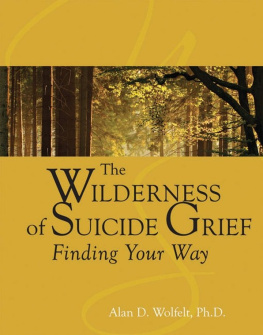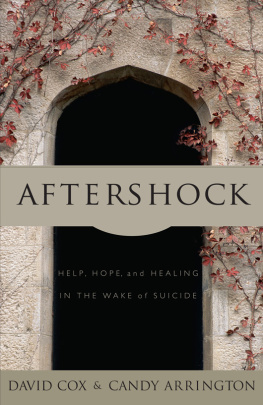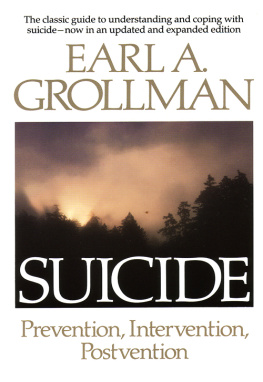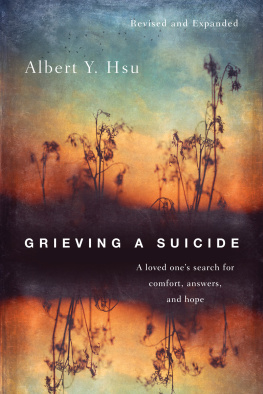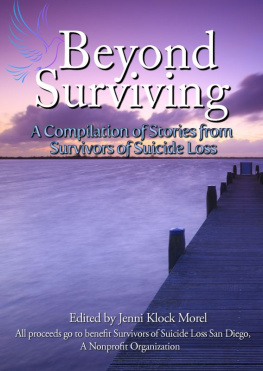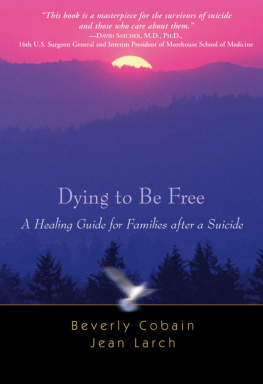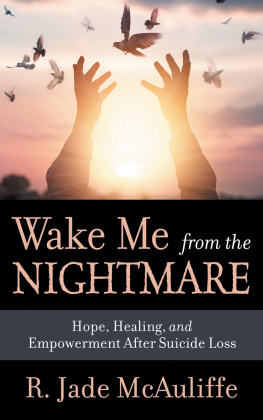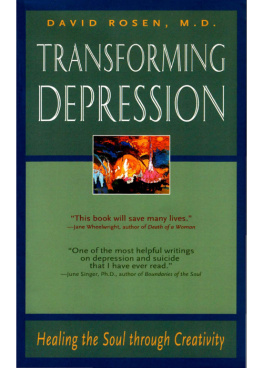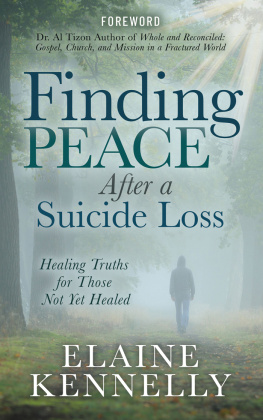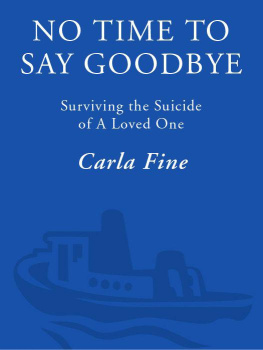
About the Authors

ANN SMOLIN, a certified clinical social worker, is director of the Northern Westchester Branch of Westchester Jewish Community Services, where for five years she has run the longest-established survivor support group in the New York metropolitan area. She completed her undergraduate studies at the University of Wisconsin and at the City College of New York and received her MSW from Yeshiva University. She is a member of the American Association of Suicidology and is in private practice in Westchester County.
JOHN GUINAN is a clinical psychologist who runs a support group for suicide survivors under the auspices of the Wall Street Counseling Center, where he is director. He is also the consulting psychologist for Harbor House, a residential treatment program in the South Bronx, and a therapy supervisor for the Institute for Human Identity in New York. He completed his undergraduate work at the College of the Holy Cross and received his MA and Ph.D. in clinical psychology from Fordham University. He maintains a private practice in Croton-on-Hudson.

Acknowledgments

T he authors are both grateful to Martin Smolin, Anns husband, who untiringly revised their writing, and to Gail Winston, their editor at Simon & Schuster, who edited whatever Martin may have missed.
We also thank Madeleine Morel, of 2M Communications, who first encouraged us to write about our experiences with survivors. Without her guidance into the world of writing and publishing this book might never have been written.
Ann Smolin would like to express her gratitude to all those at Westchester Jewish Community Services who recognized the need for suicide survivor services and have made them available for many years. Particular thanks go to Ronald Gaudia, executive director, and Alan Trager, associate executive director, for their continuing support of this work. Special acknowledgment is due to Barbara Pinto, CSW, who did the pioneering work with the WJCS group known as Families and Friends of Victims of Suicide, establishing it and setting it on its present course. Thanks also to Dr. Jeffrey Sacks, who while serving as a psychiatric consultant to the group during its formative years, gave invaluable support for the importance of its existence and clinical guidance in the treatment of survivors of suicide.
John Tiebout, who graciously and generously volunteers his time as a co-facilitator in Ann Smolins group, has also been a font of wisdom and knowledge. His ongoing contribution is gratefully appreciated.

APPENDIX
Support Group Directory

This directory was complied by the American Association of Suicidology and is printed here with their permission. The directory is updated every two weeks and is available on the Internet at www.suicidology.org.
The American Association of Suicidology (AAS) compiled this directory from a variety of sources and does not guarantee the accuracy, reliability, or completeness of this information. Neither AAS nor the authors of this book have undertaken any independent review or examination of the individuals or organizations listed. Both AAS and the authors of this book specifically disclaim any liability or responsibility for any actions or statements by any of the organizations or individuals listed. All information and statements contained in this directory are provided by and are the responsibility of the individuals or organizations who have provided the information to AAS. Publication in this directory does not imply any opinion, endorsement, or approval by AAS, its officers or members or by the authors or publishers of this book. The directory is offered for information and reference only.
Another useful website is provided by the American Foundation for Suicide Prevention (AFSP) at www.afsp.org. In addition to a support group directory, useful current information about suicide is available.

Chapter 1

A Day in the Life of a Survivor
T hree weeks after his eighteen-year-old son Robbie hung himself, Bill G.s life began to resume many of its day-to-day routines. He still fluctuated between agonizing grief and other periods where numbness set in, and he went through his daily activities like a robot.
One of these days began with Bill waking at 5:00 A.M. He then sank back on his pillow with relief when he realized this was not one of the mornings when he was awakened from a nightmare in which he was seeing Robbies body hanging in the attic. Many mornings he was drenched with sweat, emerging from a nightmare in which he had been struggling to run to Robbie, believing that if he could just get the body down and release the rope from around Robbies neck he could somehow breathe life back into his son. However, in these awful dreams he was never able to move quickly; his legs felt leaden and he could barely move them, so that he was tortured by his inability to get to Robbie and save him. On the mornings Bill awoke from these nightmares, he had very bad days, with the dream images flashing back repeatedly.
So at least Bill was numb when he wandered down to the kitchen and sat at the breakfast table this particular Monday morning. Mornings were difficult even on the numb days, though; it was the time of day when Bill felt the least energetic. Monday mornings were even more difficult, as the week of work looming ahead seemed like a huge burden. Before Robbies death that had never been the case. Bills work brought him into contact with lots of clients, and he had usually looked ahead with pleasure to the meetings he had scheduled during the coming week. Pleasure in seeing his client-friends used to offset the intense work load Bill carried.
Bills surviving son Ken, age sixteen, sat down with him at the table and began to pick at a small breakfast, his once voracious teenage appetite gone. Since Robbies death, Ken was subdued, and it was especially apparent at mealtime. He now took small portions and left more on his plate than he consumed.
This morning Ken interrupted his half-hearted munching on a slice of toast to ask his dad if he could use the family car to drive four other kids to a rock concert that night. Bill replied irritably, You should have more sense than to think about going to a concert on a school night, especially since youve gotten behind in your schoolwork since ... over the past few weeks. Gee thanks, Dad, Ken snapped back. I try to do something so I dont feel like Im living in a morgue and you bug me about schoolwork. Leaving the half-eaten slice of toast on his plate, Ken disappeared from the room, slamming the door behind him.
Next page

